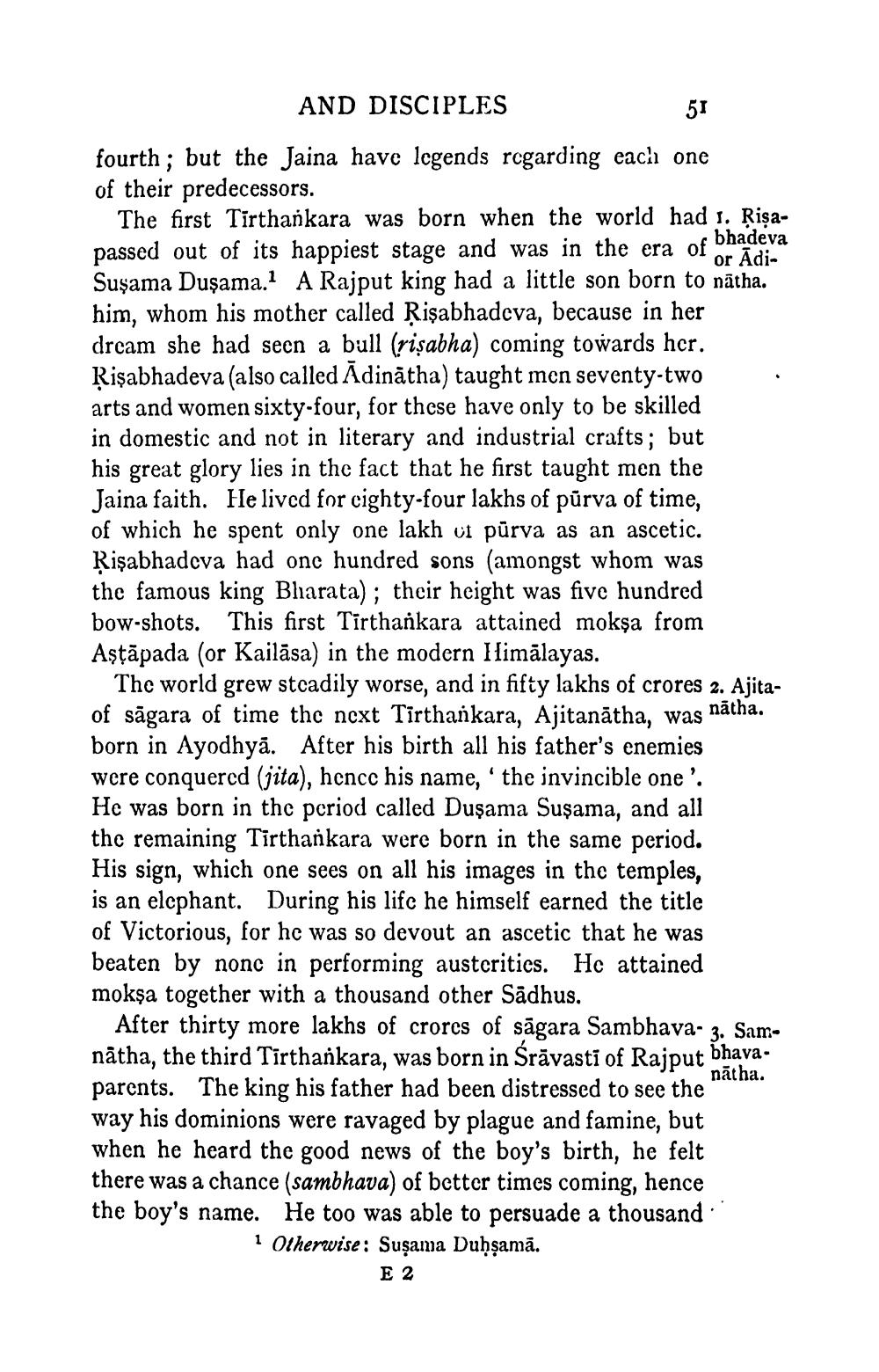________________
AND DISCIPLES
51
fourth; but the Jaina have legends regarding each one of their predecessors.
The first Tirthankara was born when the world had 1. Risabhadeva passed out of its happiest stage and was in the era of or AdiSuşama Duşama.1 A Rajput king had a little son born to natha. him, whom his mother called Risabhadeva, because in her dream she had seen a bull (riṣabha) coming towards her. Risabhadeva (also called Adinatha) taught men seventy-two arts and women sixty-four, for these have only to be skilled in domestic and not in literary and industrial crafts; but his great glory lies in the fact that he first taught men the Jaina faith. He lived for eighty-four lakhs of purva of time, of which he spent only one lakh of pūrva as an ascetic. Risabhadeva had one hundred sons (amongst whom was the famous king Bharata); their height was five hundred bow-shots. This first Tirthankara attained mokşa from Aşṭāpada (or Kailāsa) in the modern Himalayas.
nātha.
The world grew steadily worse, and in fifty lakhs of crores 2. Ajitaof sagara of time the next Tirthankara, Ajitanatha, was born in Ayodhya. After his birth all his father's enemies were conquered (jita), hence his name, ' the invincible one'. He was born in the period called Duşama Suşama, and all the remaining Tirthankara were born in the same period. His sign, which one sees on all his images in the temples, is an elephant. During his life he himself earned the title of Victorious, for he was so devout an ascetic that he was beaten by nonc in performing austerities. He attained mokşa together with a thousand other Sadhus.
After thirty more lakhs of crores of sagara Sambhavanatha, the third Tirthankara, was born in Śrāvasti of Rajput parents. The king his father had been distressed to see the way his dominions were ravaged by plague and famine, but when he heard the good news of the boy's birth, he felt there was a chance (sambhava) of better times coming, hence the boy's name. He too was able to persuade a thousand ́ ́ 1 Otherwise: Suṣama Duḥṣamā.
E 2
3. Sam
bhava
natha.




